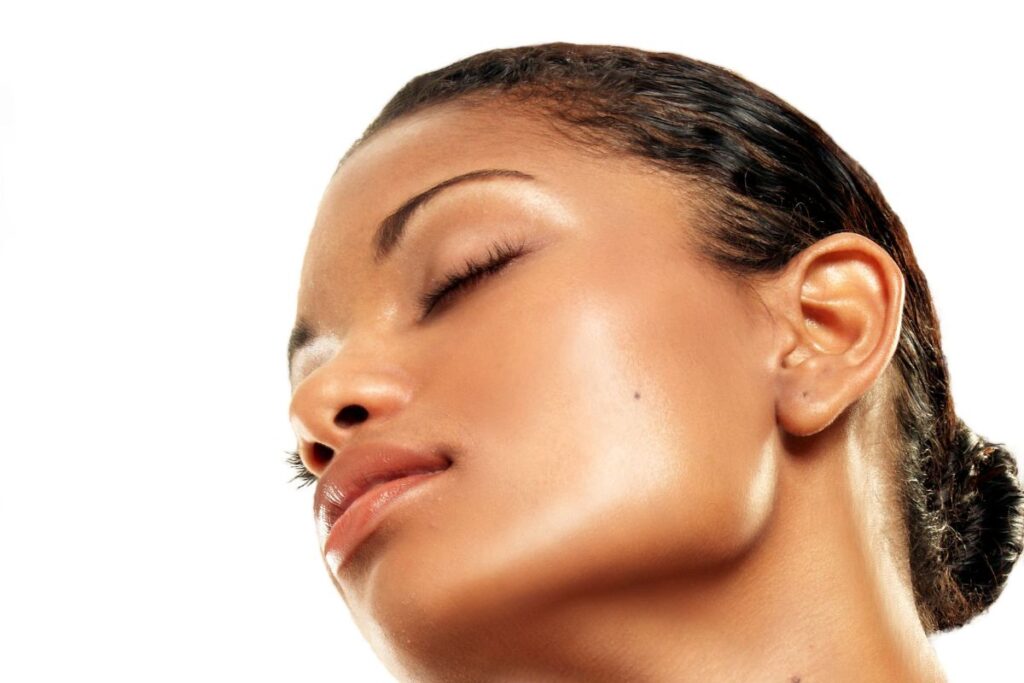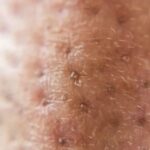How to Treat Oily Skin: The Ultimate Guide, where we debunk myths, dive into the science of oily skin, and introduce you to a natural powerhouse—black soap. Oily skin: a dilemma shared by many, yet understood by few. It’s like being part of a secret club that no one actually wants to join. The shine, the acne, the perpetual search for blotting papers—it can feel like a never-ending battle. But what if we told you that managing oily skin doesn’t have to be a constant struggle?
How to treat oily skin effectively and achieve a healthier, more balanced complexion, consider the following smmarised points:
- Cleanse Gently but Effectively: Use a mild, pH-balanced cleanser to remove excess oil without stripping your skin. Aim for cleansing twice daily, in the morning and before bed.
- Hydrate with Oil-Free Moisturizers: Even oily skin needs hydration. Choose lightweight, non-comedogenic moisturizers that won’t clog pores.
- Incorporate Regular Exfoliation: Use chemical exfoliants like salicylic acid to gently remove dead skin cells and unclog pores, reducing oiliness and preventing acne.
- Embrace Natural Remedies: Consider natural solutions like black soap, known for its ability to deep clean and balance oil production without harsh chemicals.
- Modify Your Diet: Limit intake of oily and sugary foods while increasing water consumption to help manage oil production from the inside out.
- Manage Stress: High stress levels can increase oil production, so incorporating stress-reduction techniques into your daily routine can help.
- Choose the Right Makeup: Opt for oil-free, non-comedogenic makeup to prevent exacerbating oily skin and clogging pores.
- Don’t Skip Sunscreen: Use a broad-spectrum, oil-free sunscreen to protect your skin from harmful UV rays without adding extra oil.
- Consider Professional Treatments: For persistent oily skin, consult a dermatologist about treatments like chemical peels, laser therapy, or prescription medications.
- Tailor Your Skincare Routine: Listen to your skin and adjust your skincare routine as needed, introducing new products gradually and monitoring how your skin responds.
By following these guidelines, you can control oily skin, leading to a clearer, more matte complexion that feels healthy and looks radiant. The below article explores more on this and the myths relating to oily skin.
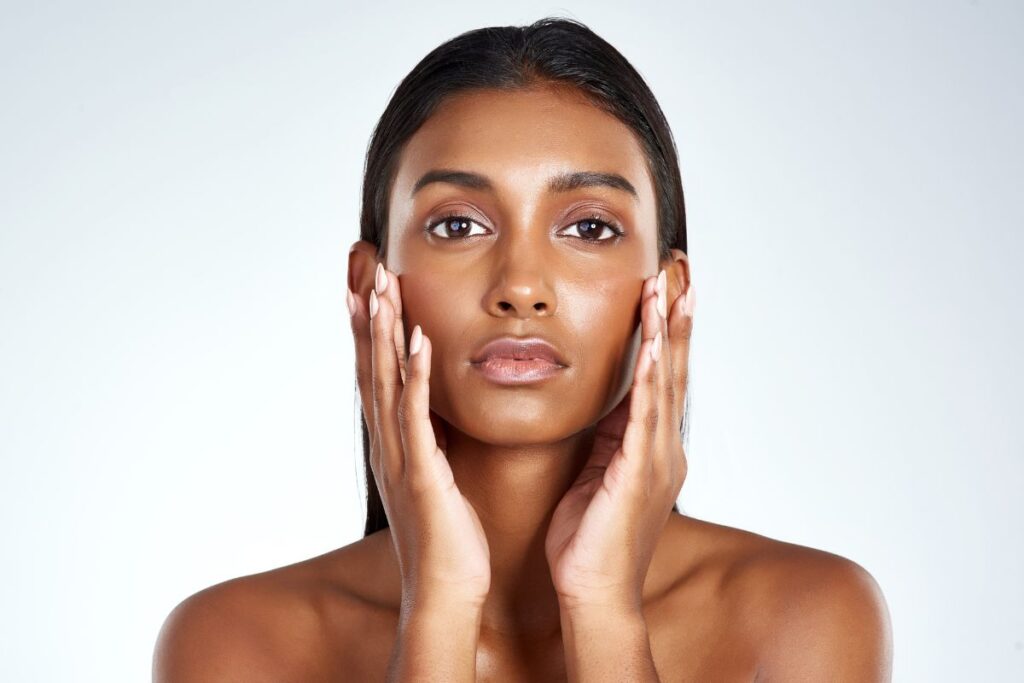
What Causes Oily Skin?
Understanding the root causes of oily skin is the first step towards effective management. So, why does your skin insist on looking like it’s competing with the local pizzeria?
- Genetics: Just like your eye color, the tendency for oily skin can run in families.
- Hormonal Influences: Fluctuations in hormones, especially during puberty, pregnancy, or menopause, can ramp up oil production.
- Environmental and Lifestyle Impacts: Humidity, diet, and stress levels also play significant roles.
The Basics of Oily Skin Care
Treating oily skin starts with mastering the basics skin care products. Here’s how:
- Cleansing: Twice a day with a gentle, pH-balanced cleanser to remove excess oil without stripping your skin.
- Moisturizing: Look for “non-comedogenic” on labels, meaning it won’t clog pores. Yes, oily skin needs hydration too!
- Sun Protection: Skipping sunscreen is a no-go. Oil-free, broad-spectrum options are your BFFs here.
Advanced Skincare Techniques
Taking your routine a step further can make a big difference:
- Exfoliation: Chemical exfoliants like salicylic acid work wonders for penetrating oily pores, while physical ones should be used with caution.
- Masks and Serums: Clay masks absorb excess oil, and niacinamide serums help regulate sebum production.
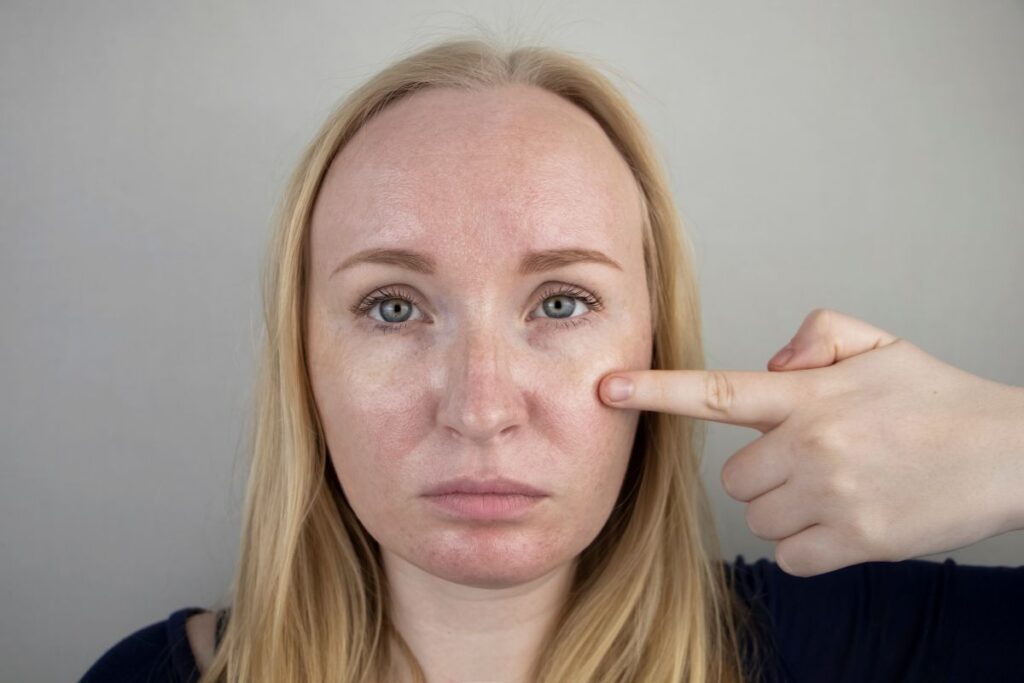
The Role of Diet in Managing Oily Skin
What you eat might just show on your face. Reducing dairy and sugar intake can help some people manage oiliness, while omega-3-rich foods like fish and walnuts might improve skin health. And, hydrating well is non-negotiable.
Black Soap: A Natural Solution for Oily Skin
enyi black soap, your new skincare superhero. Packed with natural ingredients like plantain skins and shea butter, it’s perfect for gently combating oiliness and acne. Here’s why it stands out:
- Natural and Gentle: Suitable for almost all skin types, black soap offers a deep clean without the harsh side effects.
- Fights Acne: Thanks to its antimicrobial properties, it’s effective against breakouts.
- Regulates Oil Production: With regular use, many find their skin becomes less oily over time.
Incorporating black soap into your routine is simple. Lather with water, apply in gentle circular motions, and rinse off. Start slow, as your skin adjusts, and watch for any signs of irritation.
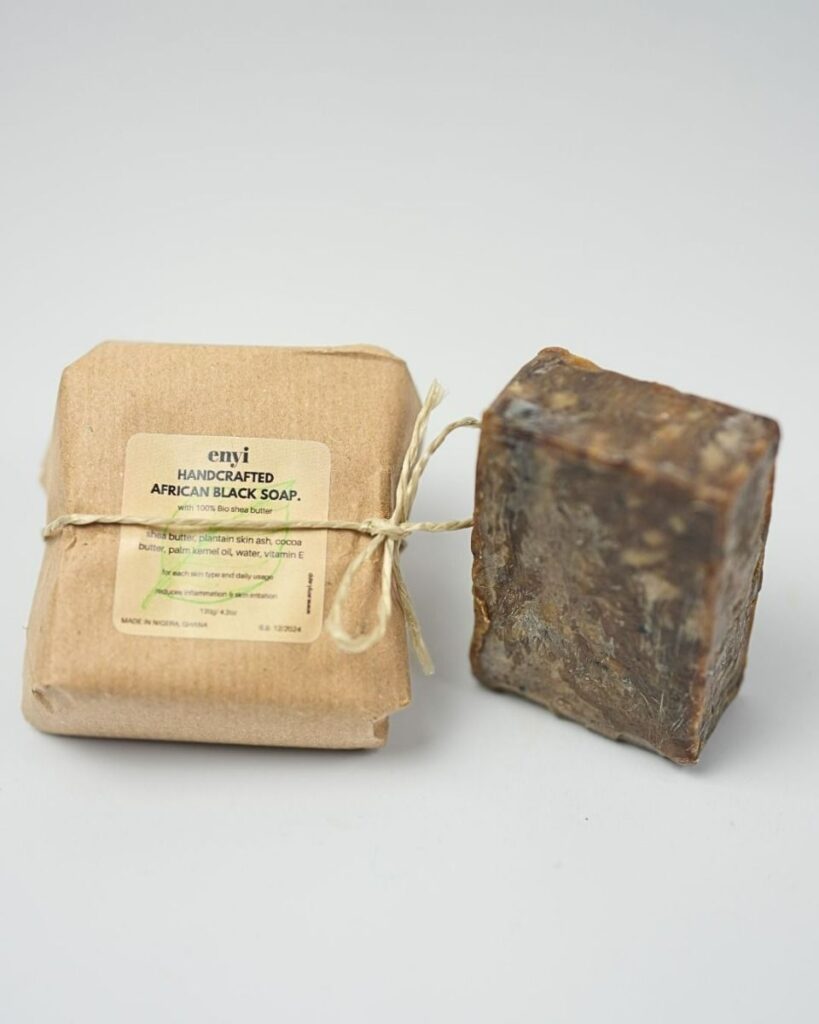
Lifestyle Adjustments for Better Skin
Oftentimes, the key to controlling oily skin lies not only in what you apply to your face but also in how you live your life. Here are some pivotal changes that can have a profound impact:
- Stress Management: High stress can trigger your body to produce more cortisol, leading to an increase in oil production. Techniques such as mindfulness, meditation, and regular exercise can significantly reduce stress levels.
- Importance of Sleep: Never underestimate the power of a good night’s sleep. Sleep deprivation can increase stress, worsening oily skin. Aim for 7-9 hours per night to help your skin repair and regenerate.
- Exercise and Its Benefits for the Skin: Regular physical activity improves blood circulation, nourishing your skin cells and helping to regulate hormone levels, which in turn can reduce oil production.
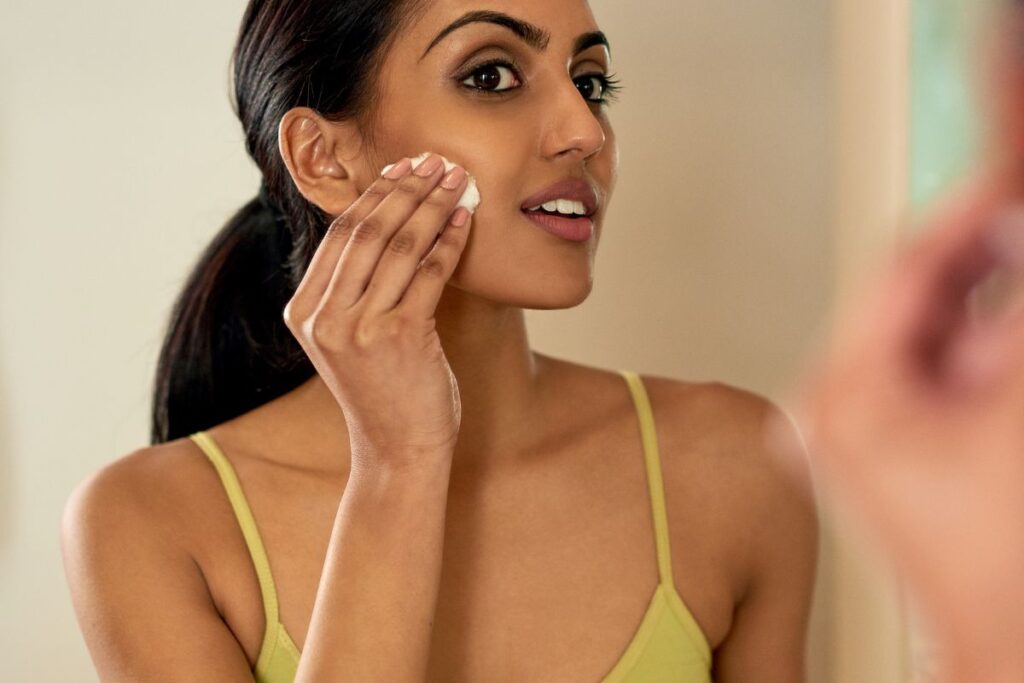
Professional Treatments for Oily Skin
For those seeking more drastic results, or if your oily skin is particularly stubborn, professional treatments can be an effective option. Always consult with a dermatologist to find the best treatment for your skin type and condition. Some popular options include:
- Chemical Peels: These remove the top layer of dead skin, unclogging pores and reducing the appearance of oiliness.
- Laser Therapy: Targets deep into the skin to reduce the size of oil glands and, consequently, the amount of oil produced.
- Prescription Medications: In some cases, medications that regulate hormone levels or directly affect oil production can be prescribed.
Personalizing Your Oily Skin Treatment Plan
Every skin is unique, which means what works for one person might not work for another. Personalizing your approach to oily skin care is crucial:
- Tailoring Skincare Routines: It’s important to listen to your skin. If a product makes your skin feel overly dry or irritated, consider adjusting its usage or switching to something else.
- Testing New Products: Introduce new products one at a time and monitor your skin’s response. This can help you identify what works best for you without overwhelming your skin.
Common Myths About Oily Skin Debunked
Oily skin comes with its own set of myths that can steer you in the wrong direction. Let’s set the record straight on some of the most common misconceptions:
Myth 1: Oily Skin Does Not Need Moisturizer
Truth: Even oily skin needs hydration. Skipping moisturizer can cause your skin to produce even more oil to compensate for the lack of moisture.
Myth 2: You Can “Dry Out” Oily Skin to Reduce Shine
Truth: Over-drying your skin can irritate it and trigger an increase in oil production. Instead, focus on balance and gentle care.
Myth 3: More Washing Equals Less Oil
Truth: Washing your face too often can strip the skin of its natural oils, leading to increased oil production. Stick to cleansing twice a day with a gentle cleanser.
Myth 4: Oily Skin Doesn’t Age
Truth: While oily skin may show signs of aging later than dry skin, it is not immune to wrinkles, sun damage, and other age-related changes. Sun protection and anti-aging care are still important.
Myth 5: All Oils Are Bad for Oily Skin
Truth: Not all oils are created equal. Non-comedogenic oils, like squalane and certain plant oils, can hydrate and nourish oily skin without clogging pores.
Myth 6: Sun Exposure Helps Dry Out Oily Skin
Truth: Sun exposure can temporarily dry the skin but can lead to long-term damage and even more oil production as the skin tries to heal itself. Always use a broad-spectrum SPF.
Myth 7: Alcohol-Based Products Are Best for Oily Skin
Truth: While alcohol can temporarily degrease the skin, it can also strip it of moisture, leading to increased oil production and potential irritation.
Myth 8: Oily Skin Is Only a Teenage Problem
Truth: Oily skin can persist into adulthood due to factors like genetics, hormonal changes, and stress.
Myth 9: Makeup Causes Oily Skin to Get Oilier
Truth: Using non-comedogenic and oil-free makeup products designed for oily skin won’t make your skin oilier and can help you achieve a matte finish.
Myth 10: There’s a One-Size-Fits-All Solution to Oily Skin
Truth: Treating oily skin is about finding the right balance of products, lifestyle changes, and possibly professional treatments that work for your unique skin.
By understanding and debunking these myths, you can take a more informed and effective approach to managing your oily skin, leading to clearer, healthier-looking skin.
